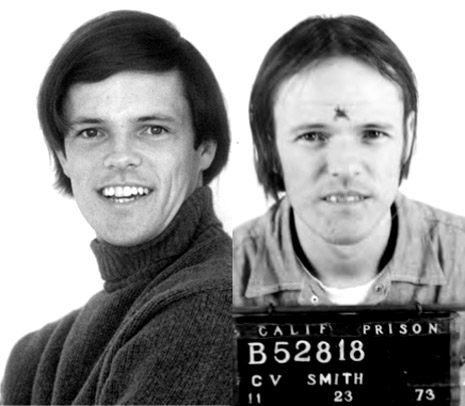
Rock lore loves to romanticize the drug casualty. Of course it’s wrong, but it’s so hard to resist imagining the tantalizing might-have-beens that surround the likes of Syd Barrett, Roky Erickson, and Skip Spence, all of whom suffered from mental illnesses almost certainly exacerbated by their enthusiastic drug use. Pot and acid have inarguably inspired creativity by breaking down the artificial walls between categories that exist only in our minds, but there are people who can’t handle that and lose it. And it’s really not so romantic, especially when the artists who fall through that crack never got the chances that Spence, Barrett, and Erickson had at recognition.
Ugly Things’ Mike Stax has authored a new book, Swim Through the Darkness, to be published in September by Process Media, which tells the tale of Maitreya Kali, born Craig Smith in 1945. He should have been a really goddamn big deal—he landed an easy entry to the L.A. music scene in 1963 when he successfully auditioned to be one of The Good Time Singers, a ten-person folk band assembled to serve as backing vocalists, musicians, and skit extras on The Andy Williams Show. Smith was an instant standout in the ensemble, making up for novice guitar playing with fine singing, an ebullient screen presence, and a toothpaste-commercial smile. In this clip, he’s the first to appear, bounding out of the starting gate ahead of the pack. He even gets lines.

The Good Time Singers in 1963. Smith is the one with the teeth, back row, second from right.
While Smith’s contributions to the Good Time Singers LPs he preformed on were limited to background vocals, he was quietly and unbeknownst to his bandmates pursuing a career as a songwriter in his own right. When the group’s tenure on William’s show ended in 1966, Smith intended to split off and start a duo with his bandmate Lee Montgomery, but that was not to be—Smith instead began auditioning for TV roles. Neat trivia item: Smith went to public school with Micky Dolenz. Smith and Dolenz both auditioned for The Monkees and for a more dramatic music-oriented series called The Happeners. I doubt I have to tell you that Dolenz became a Monkee. Smith’s audition for The Happeners was successful and he was cast as a lead, but though those who saw the pilot raved, the show never got picked up. According to TV Obscurities:
A “musical-drama,” The Happeners told the story of a Greenwich Village folk-rock trio making their way in New York City. Singers Suzannah Jordan, Chris Ducey and Craig Smith were chosen to portray the trio after 2,000 auditions in New York City and Hollywood and each episode was to include five original songs written by Bob Bower.
According to The New York Times, it cost Plautus between $6,000 and $7,000 to buy the airtime to show the pilot. Morris told Broadcasting that “at first, ABC was most interested. It tested well, and [ABC president] Leonard Goldenson called it ‘the finest pilot I’ve ever seen.’ But when sponsorship was not immediately forthcoming, the network withdrew.”
Despite near-unanimous acclaim, the pilot, alas, is not available for viewing online.
Disappointing though that experience was, it wasn’t an entirely pyrrhic victory for Smith, who embarked on a fruitful creative partnership with his Happeners co-star Chris Ducey. Together, they formed the eponymous duo Chris and Craig, which in turn morphed into the classic lost psych band The Penny Arkade, who received the patronage and production skills of The Monkees’ Mike Nesmith. Check out the Penny Arkade tune “Swim,” followed by the extremely rare Chris and Craig song “Our Love has Come Today,” which has long existed only as an acetate in Chris Ducey’s possession, and has never been heard by the public until today.
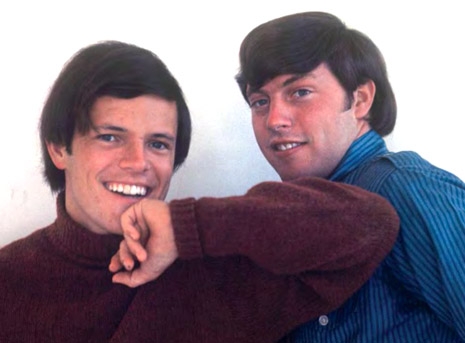
Chris and Craig
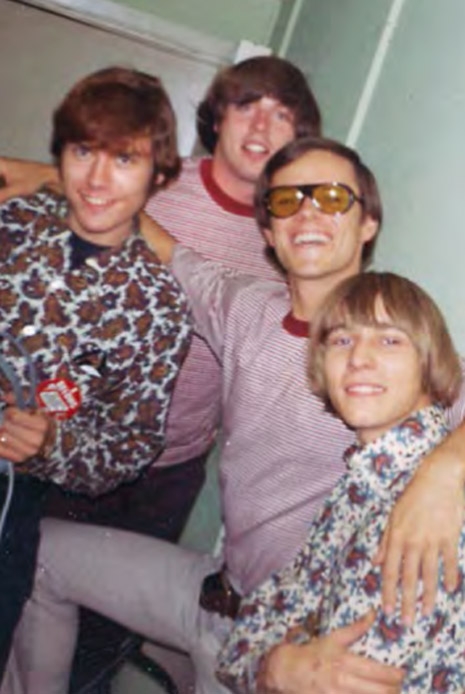
The Penny Arkade
During this fertile period, Smith became a successful songwriter on his own, penning country-rock and pop-psych tunes like “Country Girl” for Glenn Campbell, “Salesman” for The Monkees, and “Hands of the Clock” for Heather MacRae. But it was two songs for Andy Williams—the love song “Holly” and a Christmas song called “Christmas Holiday”—that gave Smith serious mailbox money, and with it, the luxury of time and resources to travel when The Penny Arkade fell apart in 1968 without ever releasing a single song. But that travel experience would alter Smith forever. He started his trek in Turkey, intending to make his way to India, merrily smoking hashish and dropping acid along the way. But fatefully, when a group of fellow travelers he’d befriended was ready to move on from Kandahar to Kabul, Smith remained behind. He was to meet up with his companions in just a few days, but two of them, Ann Dignan and Mary Hurley, recall in Swim Through the Darkness not learning what had happened to him for months:
Dignan: I ran into some people and asked about him and they said they heard about this American named Craig who went crazy. The rumor I heard was that he was hallucinating on LSD and went running through the market with a knife, threatening people or being threatened, and then just disappeared into insanity.
Hurley: The details that they gave were sketchy, but they mentioned seeing Craig in a marketplace in Kandahar looking over the fruit. Then suddenly he had grabbed a knife and gone after a vendor in one of the stalls. Apparently this action provoked an immediate reaction from the man’s friends. The tables turned, and the last thing they saw was fruit, turbans and men flying, and Craig running for his life up over a couple of distant hills, then disappearing over a ridge with the men still in hot pursuit.
Apparently Smith got the absolute living shit beaten out of him, and he may also have been confined and sexually assaulted. Whether from the mental trauma, a brain injury, the drugs he was consuming, or a combination of all of them, a previously latent schizophrenia began to come to the fore. He returned to L.A. an entirely different person—disheveled, dour, confrontational, often filthy—and that different person changed his name to Maitreya Kali and recorded a pair of legendary but unobtainable psych albums. The first was Apache, and the second was a double LP combining Apache with another album called Inca. Both combined unreleased Penny Arkade songs with new solo acoustic compositions, some of which are as eerily similar to Skip Spence’s lovely and forlorn post-hospitalization release Oar as his going-berserk-with-a-blade story is to Spence’s alarming axe-crazy breakdown. However, Smith’s refined pop sensibility remained intact, and Maitreya’s music never became as completely dithering as Spence’s did. The albums were vanity pressed in such small quantities that it actually feels kind of disingenuous to even call them releases, and when they turn up at all, the hens-teeth rare originals fetch absurd and prohibitive sums. A German bootleg from 2000 has been the only other way anyone could hear the songs; it sells for mere hundreds, rather than thousands. (The Penny Arkade material was eventually legitimately issued by Sundazed in 2004, as Not the Freeze.)
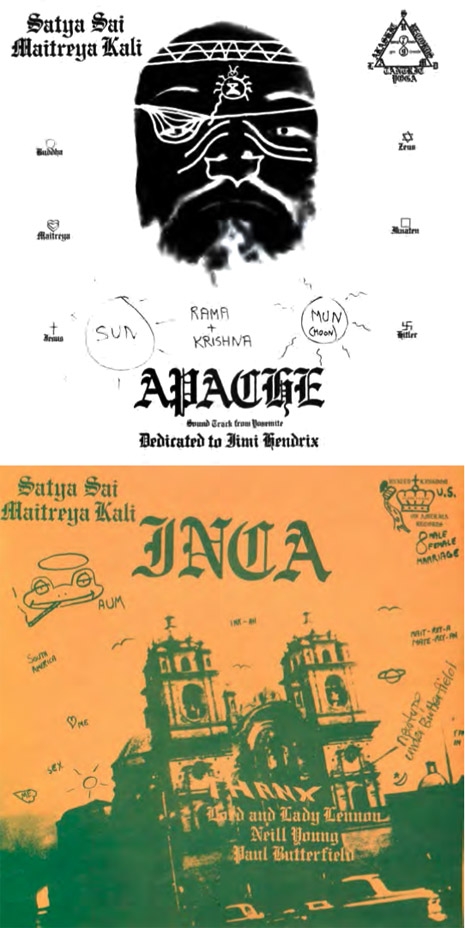
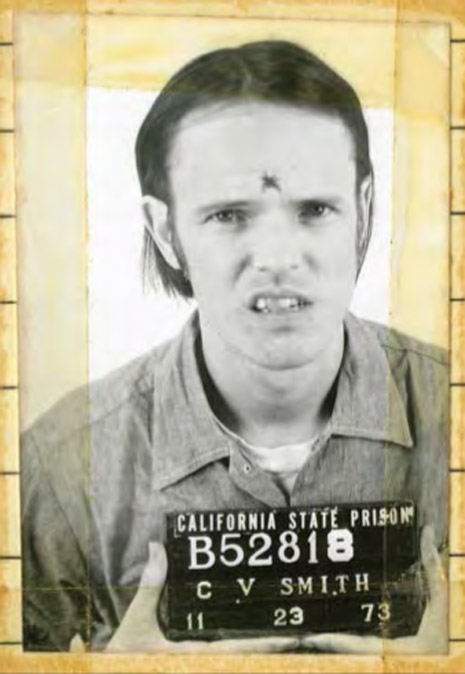
During and after the recording of his albums/manifestoes, Maitreya’s mental state continued to deteriorate badly. He succumbed to messianic delusions, had a spider tattooed on his forehead, and was even imprisoned for beating up his mother in a squabble over money before ultimately disappearing into Los Angeles’ mass of mentally ill homeless, dying in 2012. To complete Swim Through the Darkness, Mike Stax spent fifteen years tracking people down for interviews, and he was able to get information from what seems like practically ALL of Smith/Maitreya’s past associates (a notable exception being Mike Love). The amount of detail presented is amazing, impressively reconciling lore with reality through eyewitness testimony.
Apart from the Penny Arkade material released by Sundazed, it remains difficult (and expensive) to hear Maitreya Kali’s music through legitimate channels. Please enjoy this sampling, the aptly titled “One Last Farewell.”

Smith/Maitreya photographed in 2010
Photos and music graciously provided by Feral House/Process Media
Previously on Dangerous Minds:
Pink Floyd founder Syd Barrett’s first psychedelic trip, captured on film
Roky Erickson’s isolated vocals for ‘You’re Gonna Miss Me’ are crazier than a bag full of snakes